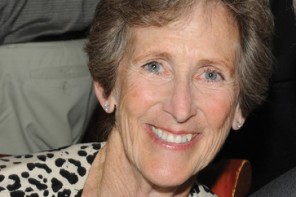Story written by Seymour Topping.
In the hours after the inexplicable Oct. 3 bombing of the Médecins Sans Frontières (Doctors Without Borders) hospital by an American gunship during the Taliban siege of Kunduz in Afghanistan, the first and most incisive public voice demanding an investigation of the airstrike was that of Jason Cone, the executive director of the international humanitarian aid group. In the bombing, which began at 2:08 a.m. and continued until 3:15 a.m. (local time), 23 were killed and dozens wounded. The casualties included doctors, other hospital staffers and Afghan civilian patients.
Cone was traveling and when news of the disaster reached him in Tokyo, he immediately took action. On PBS radio and to the world press, Cone declared that the airstrike, later described by the American military as a “mistake,” was “a great violation of humanitarian law” that “can rise to the level of a war crime until we have an independent investigation that tells us otherwise.” He asked for an investigation by the International Humanitarian Fact-Finding Commission, a body created under the Geneva Conventions of 1949. (On Oct. 24, the U.S military announced that a team of three generals would investigate the bombing of the hospital. Cone stated that Doctors Without Borders would cooperate with the military investigation, but he noted that it would be rooted in the context of military doctrine and practice and he continued to insist on an independent investigation conducted by the International Humanitarian Fact-Finding Commission.)
The Paris-born Cone, who grew up in Hastings-on-Hudson, spoke in grief and outrage after the initial attack, describing how under the bombardment, Médecins Sans Frontières (MSF) staffers desperately called military offices, including that of the chairman of the Joint Chiefs of Staff, in an effort to stop the attack. He pointed out that the hospital was a known structure. We had, he said, made the exact GPS coordinates of our health facilities in the Kunduz compound clear to the American-led coalition forces, to Afghan authorities and to U.S. officials, both in Washington, D.C. and Kabul, as well as to the enemy Taliban, back on Sept. 29 and 30.
Pentagon officials, acknowledging that the bombing was a mistake, had stated that the AC-130 gunship, which had carried out the strike, had been dispatched in response to a call by Afghan forces for air support as they were battling the Taliban.
Several days later, President Barack Obama telephoned MSF International President Joanne Liu to apologize and express condolences. He promised a thorough investigation and, if necessary, would implement changes to make sure that tragedies like this one are less likely in the future. (The Pentagon has since offered to pay compensation for the bombing.)
Cone spoke of the events as “the darkest couple of days in our organization’s history.” MSF was founded in 1971 by a small group of French doctors and journalists with the aim of providing emergency care to populations in danger. Its underlying principle to this day is that assistance is offered based solely on need, irrespective of race, religion, gender or political affiliation. MSF was awarded the Nobel Peace Prize in 1999 “for its work with populations in danger” and now operates in more than 70 countries.
Cone has experienced some of the MSF’s “dark days.” Prior to assuming the post of executive director — a position based in New York City — earlier this year, Cone served as communications director. He oversaw emergency and advocacy functions relating to the Haiti earthquake, the West African Ebola outbreak, global childhood malnutrition and HIV AIDS. During his tenure as communications director, The Harris Poll ranked MSF as the top nonprofit organization in the field of international aid (2012-14).
In recent years, Cone has at times worked on the ground on risk assessment assignments serving MSF’s Medical Care Under Fire program. He put into place measures to safeguard aid workers operating in countries racked by civil war or factional power struggles. Well-known in the field to hospital workers, Cone is a powerfully built man, a former high school football player, 38 years of age, standing 6 feet, 1 inch. Despite the anguishing nature of his work, he wears a ready smile.
In the last two years he has toured the South Sudan, the Arab Middle East nations, Myanmar and the Gaza Strip in Palestine. It has been a period in which there has been a rash of attacks by warring factions on medical aid stations. He has been writing a summary survey report, which proposes worldwide action to protect humanitarian aid workers and their vital life-saving facilities. Yet he manages to find time to be with his wife, Christie, a corporate lawyer, and to play with his two small children in their Manhattan apartment.
Asked about what seemed to be Cone’s early commitment to humanitarian causes, evident at Franklin & Marshall College, his mother, Karen Topping Cone, said, “From the time he was a little boy, he was always quite intense about principles, passionate about doing right and personally sensitive to other people’s pain.”
From the age of 8, traveling with his parents, Jeffrey and Karen, both international business executives, he was an intense observer of poverty and deprivation in the less-developed countries.
Today, Jason Cone returns to those countries to ease pain and suffering with no less passion.
The author, the former managing editor of The New York Times, is married to Wagger Audrey Ronning Topping. They are Jason Cone’s grandparents.




